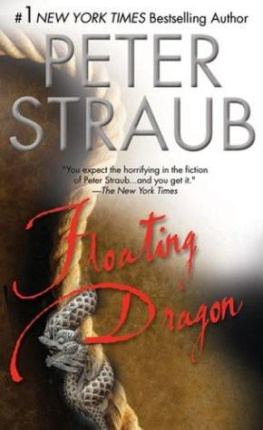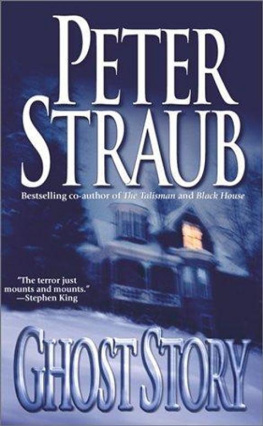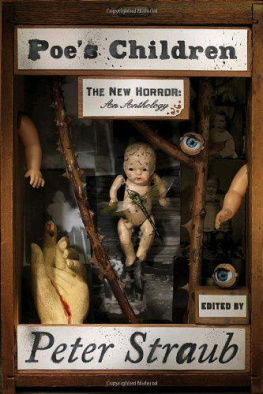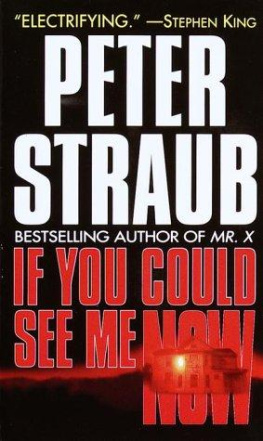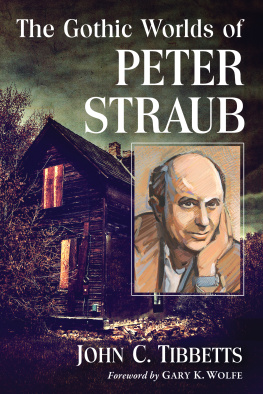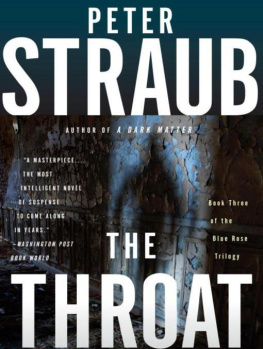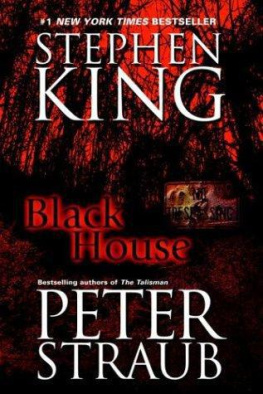Peter Straub - Floating Dragon
Here you can read online Peter Straub - Floating Dragon full text of the book (entire story) in english for free. Download pdf and epub, get meaning, cover and reviews about this ebook. year: 2003, publisher: Berkley Books, genre: Detective and thriller. Description of the work, (preface) as well as reviews are available. Best literature library LitArk.com created for fans of good reading and offers a wide selection of genres:
Romance novel
Science fiction
Adventure
Detective
Science
History
Home and family
Prose
Art
Politics
Computer
Non-fiction
Religion
Business
Children
Humor
Choose a favorite category and find really read worthwhile books. Enjoy immersion in the world of imagination, feel the emotions of the characters or learn something new for yourself, make an fascinating discovery.
- Book:Floating Dragon
- Author:
- Publisher:Berkley Books
- Genre:
- Year:2003
- Rating:5 / 5
- Favourites:Add to favourites
- Your mark:
- 100
- 1
- 2
- 3
- 4
- 5
Floating Dragon: summary, description and annotation
We offer to read an annotation, description, summary or preface (depends on what the author of the book "Floating Dragon" wrote himself). If you haven't found the necessary information about the book — write in the comments, we will try to find it.
Floating Dragon — read online for free the complete book (whole text) full work
Below is the text of the book, divided by pages. System saving the place of the last page read, allows you to conveniently read the book "Floating Dragon" online for free, without having to search again every time where you left off. Put a bookmark, and you can go to the page where you finished reading at any time.
Font size:
Interval:
Bookmark:
Raves for Peter Straub's Newest Bestseller!
"Straub's effects are quite spectacular... I was fairly awed by some of the more nightmarish scenes in FLOATING DRAGON."
NEW YORK TIMES
"A book that positively bubbles with invention, jammed with characters, color, events, hackle-raising twists of fate, horrific monsters, terrifying nightmares, and a reality that shimmers and shifts as much as the noxious steam from a witch's cauldron."
BOOK WORLD
"Here is a novel guaranteed to double the national nightmare quotient, so watch out!"
COSMOPOLITAN
"A deliciously imaginative story of hauntings and monsters."
-SAN FRANCISCO CHRONICLE
FLOATING DRAGON
Also by Peter Straub
MARRIAGES
JULIA
IF YOU COULD SEE ME NOW
GHOST STORY
SHADOWLAND
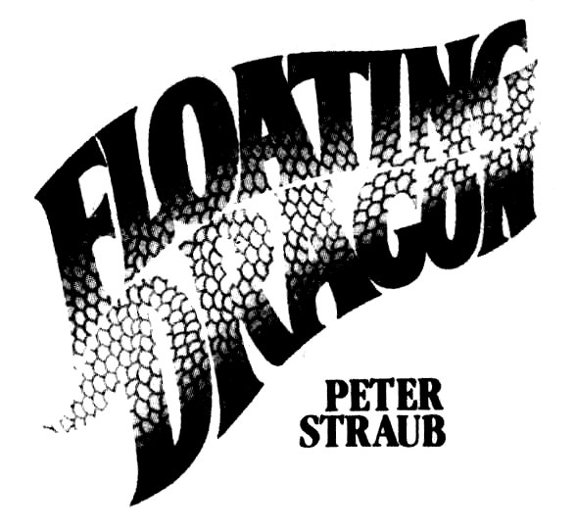

BERKLEY BOOKS, NEW YORK
PUBLISHER'S NOTE
This novel is a work of fiction. Names, characters, places, and incidents either are the product of the author's imagination or are used fictitiously, and any resemblance to events, locales, or actual persons, living or dead, is entirely coincidental.
"When the Red, Red Robin Comes Bob, Bob, Bobbin' Along" by Harry Woods copyright 1926 Callicoon Music (pursuant to sections 304 [c] and 401 |b] of the U.S. Copyright Law)
This Berkley book contains the complete
text of the original hardcover edition. It has been completely reset in a typeface designed for easy reading, and was printed from new film.
FLOATING DRAGON
A Berkley Book / published by arrangement with the author
PRINTING HISTORY
G P. Putnam's Sons edition / February 1983 Berkley edition / March 1984
All rights reserved. Copyright 1982 by Peter Straub. This book may not be reproduced in whole or in part, by mimeograph or any other means, without permission. For information address: G. P. Putnam's Sons, 200 Madison Avenue, New York, New York 10016.
ISBN: 0-425-06285-6
A BERKLEY BOOK TM 757,375 Berkley Books are published by The Berkley Publishing Group, 200 Madison Avenue, New York, New York 10016. The name "BERKLEY" and the stylized "B" with design are trademarks belonging to Berkley Publishing Corporation.
PRINTED IN THE UNITED STATES OF AMERICA
FOR
EMMA SYDNEY VALLI STRAUB
CONTENTS
Introduction: The Death of Stony Friedgood
Part One: Entry
Part Two: Establishment
Part Three: Dominion
After the Moon
Now time and the land
are identical,
Linked forever.
John Ashbery, Haunted Landscape
The devil is a dumb spirit. All the
devil knows is what you tell him with
your own big fat mouth.
Frederick K. Price
1962-1963
For Stony Baxter Friedgood, her infrequent adulteries were adventurespicking up a man who thought he was picking her up gave her life a sense of drama missing since she had been twenty and a student at Scripps-Claremont. Not only adventures, they were the salvation of her marriage. In college she had juggled four boyfriends, and only one of them, a mathematics graduate student named Leo Friedgood, had known of the existence of the others. Leo had seemed amused by her secretiveness, as he was amused by her private school nickname. Only after several months did Stony realize the extent to which amusement masked arousal.
She married him just after graduationno graduate school for Stony, and no more for Leo, who shaved his beard and bought a suit and took a job with Telpro Corporation, which had an office in Santa Monica.
1969
Tabby Smithfield grew to the age of five in an enormous stone house in Hampstead, Connecticut, with four acres of well-tended ground and a burglar alarm on the front gates. The neighborhood, consisting of sixteen houses along Long Island Sound, was impressive enough to attract its own tourists; perhaps six cars a day trolled down Mount Avenue, the drivers and passengers leaning to glimpse the mansions behind the gates. Locally, Mount Avenue was "The Golden Mile," though it was twice longer than that; it was the original road between Hillhaven, the Victorian suburb of Patchin, and Hampstead. Mount Avenue, the site of the original farm settlements of Hampstead and Hillhaven, had once been the principal coaching road north to New Haven, but its hectic days were long past. Manufacturers with plants in Bridgeport or Woodville, a doctor, and the head of Patchin County's biggest legal practice lived in the impressive houses, along with others like them, older people who wished no excitement in their private lives. Tourists rubbernecking along the Golden Mile rarely saw themthere might be a visiting movie star taking the sea-laden air along the coastal road or a college president pausing for breath before he made his pitch for funds, but the owners of the houses were invisible.
Outside the gray stone house, however, those taking a fast peek through the opened gates in 1969 might have seen a tall dark-haired man in tennis whites playing with a small boy. Perhaps a uniformed nanny would have been hovering on the steps before the front door, her posture inexplicably tense. And perhaps the boy's posture too would have seemed awkward, inhabited by the same tension, as if little Tabby Smithfield were half-aware that he was not supposed to be playing with his father. They make an oddly static and incomplete scene, father and son and nanny. They are badly composed: one figure is missing.
1964
Stony Friedgood's first affair after her marriage was in 1964, with the husband of a friend, a neighbor in their neat row of tract houses: he was unlike Leo, being jovial and blond and easygoing, a very junior banker, and Leo invariably spoke of him with contempt. This affair endured only two months.
Stony's delicate face, which was sharp-featured and framed in shining brown hair, became familiar in galleries and art museums, in certain bars at certain times. Considered from a utilitarian point of view, one neither Stony's nor Leo's parents could have understood, the Friedgoods had a successful marriage. By the time Leo was promoted twice and transferred to Telpro's New York offices, their income had doubled and Stony weighed only a pound more than when she was a student at Scripps. She left behind her yoga classes, a half-completed gourmet-cooking course, four unused tickets to a concert series, the undigested and already vague memories of six or seven men. Leo left nothing at all behindthe company paid to ship east his sailboat and the eight cases he called his "cellar."
1968
Monty Smithfield, his grandfather, was the great figure in Tabby's early childhood. It was Monty who kissed him first when he returned from nursery school, and Monty and his mother took him to his first haircut. Birthdays and Christmases Monty gave him stupefying presents, vast train sets and every possible sort of preschool vehicle from walkers to Big Wheels, even a dwarf pony stabled at a riding school. This was presented with much fanfare at Tabby's third birthday. August, 1968. Monty had provided a party for twenty children, a band playing Beatle songs and tunes from Disney movies, an ice sculpture of a brontosaurusTabby loved dinosaurs then, and only evolution kept Monty Smithfield from buying his grandson a baby monster. "Come on, Clark," called the jubilant old man as the gardener led out the shaggy little pony. "Mount your son on this great beast." But Clark Smithfield had gone inside to his bedroom and was at that moment whacking a tennis ball against the elaborate headboard with a well-worn Spaulding racket, trying to chip the paint off one of the wooden curlicues.
Next pageFont size:
Interval:
Bookmark:
Similar books «Floating Dragon»
Look at similar books to Floating Dragon. We have selected literature similar in name and meaning in the hope of providing readers with more options to find new, interesting, not yet read works.
Discussion, reviews of the book Floating Dragon and just readers' own opinions. Leave your comments, write what you think about the work, its meaning or the main characters. Specify what exactly you liked and what you didn't like, and why you think so.

